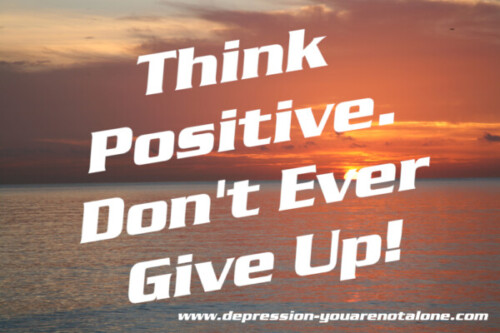The Vicious Cycle: Exploring the Relationship Between Depression and Insomnia
By Editorial Team
Depression and insomnia are two interconnected conditions that frequently coexist and impact individuals’ mental and physical well-being. The relationship between depression and insomnia is bidirectional, with each condition exacerbating the other. This discussion aims to delve into the complex interplay between depression and insomnia, exploring the causes, consequences, and potential treatment strategies for this challenging duo.
Understanding Depression and Insomnia:
Depression: Depression is a mood disorder characterized by persistent feelings of sadness, hopelessness, and a loss of interest or pleasure in activities. It affects various aspects of life, including mood, cognitive function, energy levels, and motivation.
Insomnia: Insomnia refers to difficulties initiating or maintaining sleep, resulting in insufficient restorative sleep. Insomnia can manifest as difficulty falling asleep, waking up frequently during the night, or early morning awakenings. It leads to daytime fatigue, irritability, and impaired cognitive functioning.
The Bidirectional Relationship:
Depression and insomnia often co-occur and influence each other through several mechanisms:
Shared Neurobiology: Depression and insomnia share underlying neurobiological factors, such as abnormalities in neurotransmitters (e.g., serotonin, norepinephrine) and dysregulation in the hypothalamic-pituitary-adrenal (HPA) axis, which regulates stress responses.
Disrupted Sleep Architecture: Depression can disrupt sleep patterns, leading to insomnia. Individuals with depression may experience difficulty falling asleep due to rumination, intrusive thoughts, or heightened emotional arousal. Sleep disturbances in depression often involve decreased slow-wave sleep and rapid eye movement (REM) sleep abnormalities.
Sleep Deprivation Effects: Insomnia can contribute to the development or worsening of depressive symptoms. Chronic sleep deprivation disrupts emotional regulation, impairs cognitive function, and increases vulnerability to stressors, which can trigger or exacerbate depression.
Negative Thought Patterns: Both depression and insomnia are associated with negative thought patterns. Insomnia can intensify negative thinking, while depressive thoughts can contribute to anxiety and worry about sleep, perpetuating the cycle.
Consequences of the Relationship:
The interplay between depression and insomnia can have significant consequences on an individual’s overall well-being:
Increased Severity and Chronicity: Comorbidity of depression and insomnia often leads to more severe and persistent depressive symptoms. The presence of insomnia in depression can predict poorer treatment outcomes and longer recovery periods.
Impaired Cognitive Functioning: Sleep disturbances from insomnia can contribute to cognitive impairments, such as difficulties with concentration, memory, decision-making, and problem-solving. These cognitive deficits can further perpetuate depressive symptoms.
Increased Suicide Risk: The combination of depression and insomnia significantly increases the risk of suicidal ideation and behavior. Sleep disturbances can intensify feelings of hopelessness and exacerbate emotional dysregulation.
Treatment Strategies:
Addressing both depression and insomnia is crucial for comprehensive treatment. Here are some strategies:
Cognitive Behavioral Therapy for Insomnia (CBT-I): CBT-I is a highly effective therapeutic approach that targets the underlying causes of insomnia. It helps individuals identify and modify maladaptive sleep-related thoughts and behaviors, promotes healthy sleep hygiene, and improves sleep patterns.
Treatment of Depression: Treating depression through psychotherapy (e.g., Cognitive Behavioral Therapy, Interpersonal Therapy) and/or medication (e.g., antidepressants) can alleviate depressive symptoms and potentially improve sleep.
Sleep Hygiene: Adopting good sleep habits, such as maintaining a regular sleep schedule, creating a sleep-conducive environment, and practicing relaxation techniques, can promote better sleep quality.
Addressing Underlying Factors: Identifying and addressing potential underlying factors contributing to both depression and insomnia, such as stress, trauma, or medical conditions, can be beneficial.
Medications: In some cases, medication specifically targeting insomnia (e.g., sedative-hypnotics) or sleep disturbances associated with depression may be prescribed to improve sleep quality.
Depression and insomnia form a challenging, bidirectional relationship, with each condition influencing and perpetuating the other. The interplay between depression and insomnia contributes to increased symptom severity, impaired cognitive functioning, and heightened risk for negative outcomes. Recognizing and addressing this intricate relationship is crucial for comprehensive treatment. A combination of therapies, including CBT-I, treatment for depression, sleep hygiene practices, and addressing underlying factors, can help break the cycle, improve sleep quality, and alleviate depressive symptoms, leading to improved overall well-being. Consulting with healthcare professionals is essential to develop an individualized treatment plan tailored to specific needs. Nothing herein is intended to diagnose, treat or cure any disease. Please do your research and seek professional advice before using any information.

